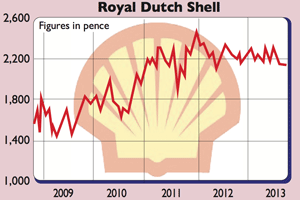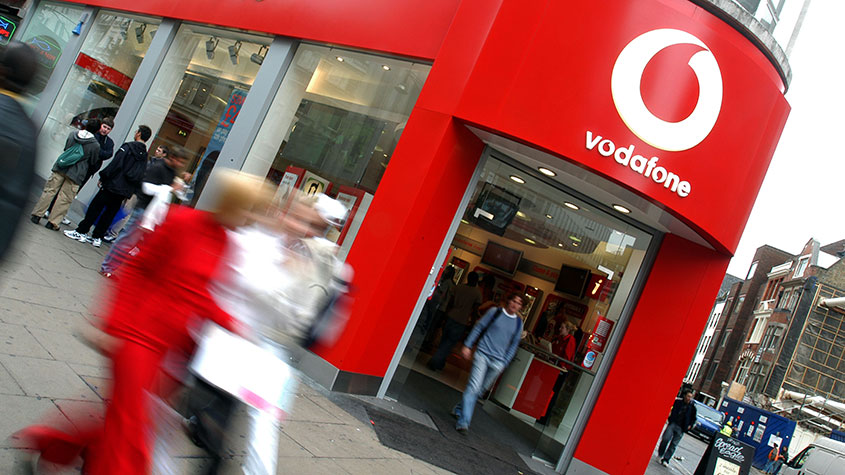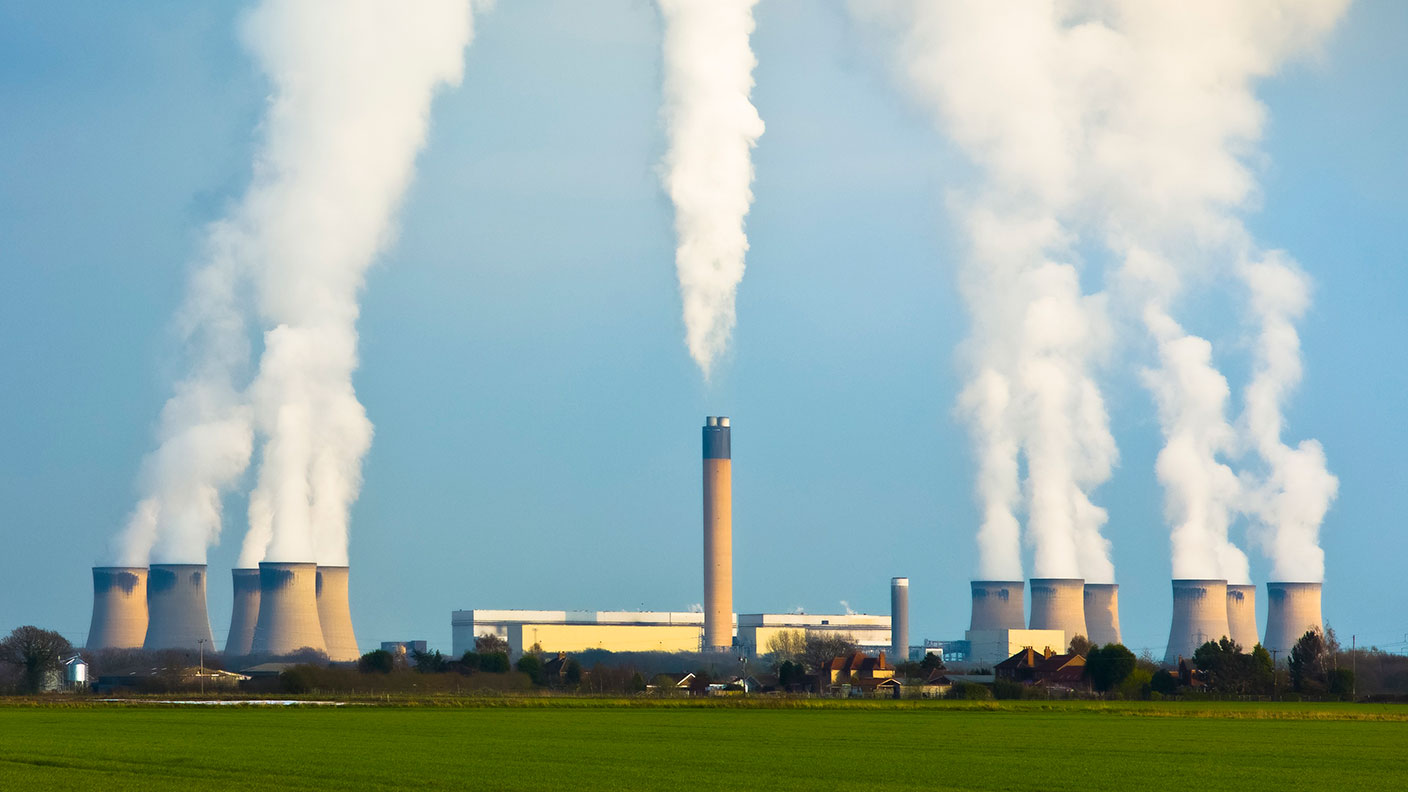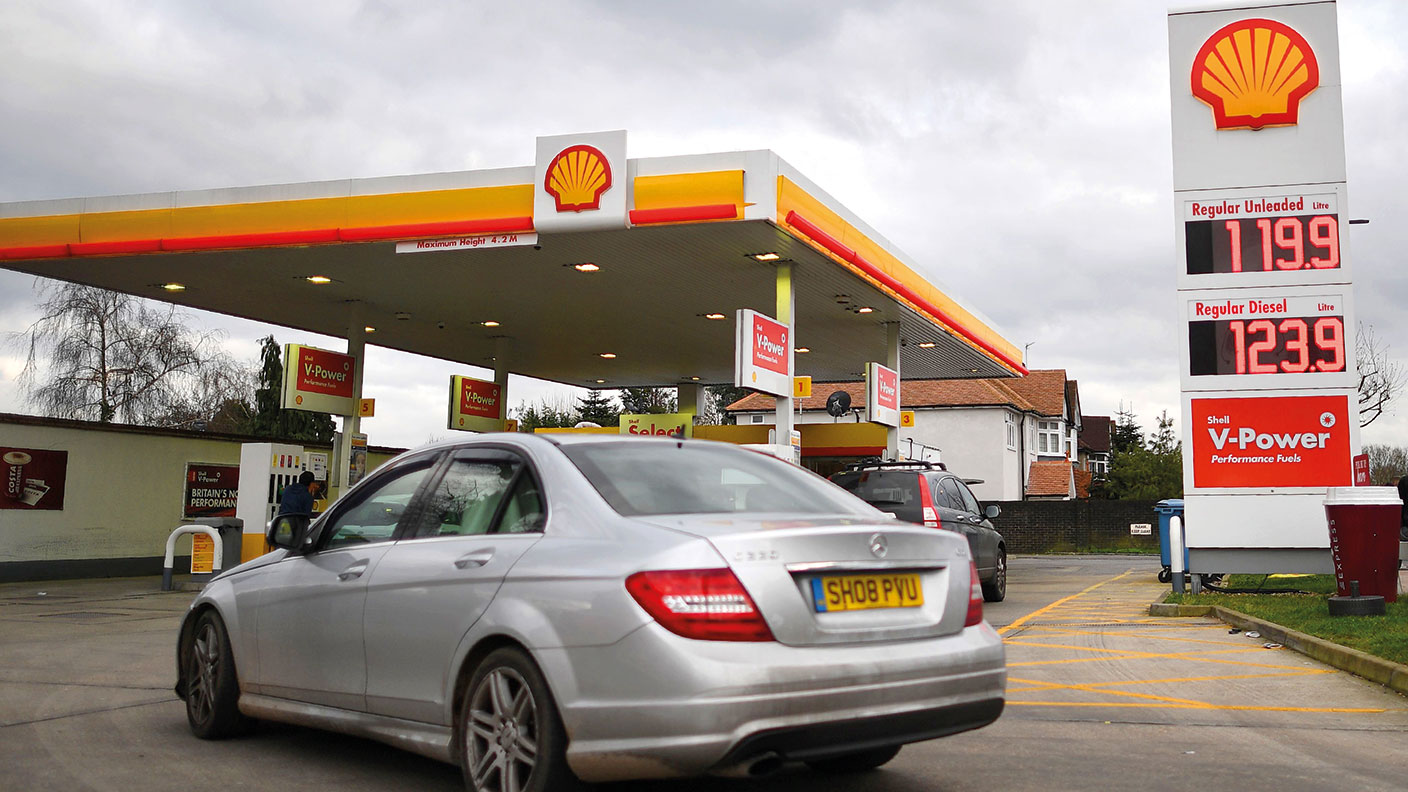Shares in focus: Can Shell deliver the goods?
Oil giant Shell is out of favour with the City, but does its dividend yield make the shares worth buying? Phil Oakley investigates.
Get the latest financial news, insights and expert analysis from our award-winning MoneyWeek team, to help you understand what really matters when it comes to your finances.
You are now subscribed
Your newsletter sign-up was successful
Want to add more newsletters?

Twice daily
MoneyWeek
Get the latest financial news, insights and expert analysis from our award-winning MoneyWeek team, to help you understand what really matters when it comes to your finances.

Four times a week
Look After My Bills
Sign up to our free money-saving newsletter, filled with the latest news and expert advice to help you find the best tips and deals for managing your bills. Start saving today!
Shell'sbeing shunned by the City, but its tasty dividend yield looks safe, says Phil Oakley.
Shell is the most valuable company on the British stock market and one of the biggest oil firms in the world. However, despite its size, investors have had a lot to put up with over the last decade or so.
That's because the company has been spending a lot of time trying to put right a number of self-inflicted problems.
MoneyWeek
Subscribe to MoneyWeek today and get your first six magazine issues absolutely FREE

Sign up to Money Morning
Don't miss the latest investment and personal finances news, market analysis, plus money-saving tips with our free twice-daily newsletter
Don't miss the latest investment and personal finances news, market analysis, plus money-saving tips with our free twice-daily newsletter
Back in 2004 it was embroiled in a scandal when it told investors it had greater reserves of oil and gas than it actually did. It has taken a long time to recover the loss of trust that ensued.
Shell also suffered because it failed to invest for the future. Unlike BP, it did not spend money hoovering up other oil companies, nor did it put enough money into finding more oil and gas around the world.
Without investment in good projects, many feared it would not have enough money to keep on paying decent dividends.
In recent years Shell has been trying to make up for lost time. It is spending around $30bn a year on new oil and gas projects. The problem it faces is that the stock market fears this spending might not pay off. Consequently, Shell's share price has gone nowhere for the last three years.
Can it deliver the goods? Or is it destined to become a corporate dinosaur that investors don't need to bother with?
Shell's troubled growth strategy
The whole point of investing is to get a decent return on the money you spend. Getting it wrong can have disastrous effects on the value of a company and the fortunes of investors' savings plans. Unfortunately, people are not confident that Shell will get it right.
The City worries it may be spending too much. The cost of extracting oil and gas is rising, while the amount of money it can be sold for isn't. This is not what you need when you are trying to grow profits and cash flows.
Bears point to the fact that Shell has sunk $24bn into US shale-gas assets that have yet to turn a profit. Investments here have been written down in value.
Large amounts of money spent in Alaska have also produced disappointing results. Then there are the problems in Nigeria, which accounts for nearly 10% of what Shell produces. A lot of its oil is being stolen, which means lower profits and hassle.
To make things worse, Shell has also abandoned its target of producing four million barrels of oil per day. Instead, it says it will focus on its financial performance and growing cash flows. This has raised fears that Shell's growth strategy is in trouble.
But it's not all bad news
If it can get to $50bn of annual-trading cash flow by 2015, when investment spending might come down as well, then there should be plenty of spare cash to pay out to shareholders in the years ahead. The one caveat here is that the oil price has to stay at between $80 and $100 per barrel.
Shell is doing the right thing by putting more money into gas, where the growth prospects are better than oil. Some of its big projects, such as the gas-to-liquids plant in Qatar, are starting to do well as are investments in Malaysia and Australia.
Over the next two to three years, five big projects in areas such as the Gulf of Mexico, Iraq and Kazakhstan and in liquefied natural gas (LNG) are set to come on stream. These should add another $4bn to Shell's annual cash flow.
Another thing that should reassure investors is the company's strong financial position. Its debt as a percentage of money invested in the business (gearing) is a very low 10%, while the current level of profits is enough to pay the interest bill nearly 25 times over.
However, the best thing about Shell and its share price right now is that all the worrying about its future has left the shares looking rather cheap. City analysts are still expecting profits and dividends to keep on growing modestly.
With this in mind, the prospective price-to-earnings (p/e) ratio of 9.1 times suggests Shell's shares represent reasonable value.
Of much more interest is the dividend yield of 5.2%. This is covered more than twice by profits and looks safe at the moment. If Shell can deliver on its cash-flow targets then this payout should increase over the next few years.
However, as it is paid in dollars, what happens to the pound/dollar exchange rate will have some impact on what UK shareholders end up pocketing.
With banks typically paying paltry rates of interest on savings accounts, you could do a lot worse than buying shares in Shell, reinvesting your dividend payments and watching the value of your investment hopefully increase over the next five to ten years.
Yes, of course, the doom-mongers have some valid points. However, given that a lot of the possible disadvantages are already reflected in the current share price, stop worrying and put some Shell in your portfolio.
Verdict: buy for dividends


Directors' shareholdings
Get the latest financial news, insights and expert analysis from our award-winning MoneyWeek team, to help you understand what really matters when it comes to your finances.
Phil spent 13 years as an investment analyst for both stockbroking and fund management companies.
-
 Can mining stocks deliver golden gains?
Can mining stocks deliver golden gains?With gold and silver prices having outperformed the stock markets last year, mining stocks can be an effective, if volatile, means of gaining exposure
-
 8 ways the ‘sandwich generation’ can protect wealth
8 ways the ‘sandwich generation’ can protect wealthPeople squeezed between caring for ageing parents and adult children or younger grandchildren – known as the ‘sandwich generation’ – are at risk of neglecting their own financial planning. Here’s how to protect yourself and your loved ones’ wealth.
-
 Britain’s most-bought shares w/e 12 August
Britain’s most-bought shares w/e 12 AugustNews A look at Britain’s most-bought shares as of 12 August, providing an insight into how investors are thinking and where opportunities may lie.
-
 Should you be worried about energy windfall tax proposals?
Should you be worried about energy windfall tax proposals?Analysis Calls have been growing for a windfall tax on UK oil and gas producers. It's a popular idea, but is it a good one? And what does it mean for investors in the UK's energy companies? Rupert Hargreaves explains.
-
 The outlook for Shell shares is mixed, despite bumper profits
The outlook for Shell shares is mixed, despite bumper profitsAnalysis With profits surging, it looks as if Shell is on a roll, but the company’s growth from here is hard to see as Rupert Hargreaves explains.
-
Share tips of the week
Tips MoneyWeek’s comprehensive guide to the best of this week’s share tips from the rest of the UK's financial pages.
-
 Investors can no longer be sure of Shell
Investors can no longer be sure of ShellNews Oil giant Royal Dutch Shell, one of the market’s most reliable income providers, has cut its dividend for the first time in over 70 years. Matthew Partridge reports.
-
 The Shell BG deal will be the first of many – which oil giant is next?
The Shell BG deal will be the first of many – which oil giant is next?Features Shell's takeover of BG Group will spark a wave of mergers in the energy sector. John Stepek asks – who will be next?
-
Company in the news: Royal Dutch Shell
Features A shock profit warning from Royal Dutch Shell has taken the City by surprise. Phil Oakley explains what that means for investors.
-
 Today’s profit warning looks like a good time to buy Shell
Today’s profit warning looks like a good time to buy ShellFeatures Shares in Shell took a hit after the company's profits warning. But that doesn't mean you should sell, says Antonia Oprita. In fact, now may be time to buy.